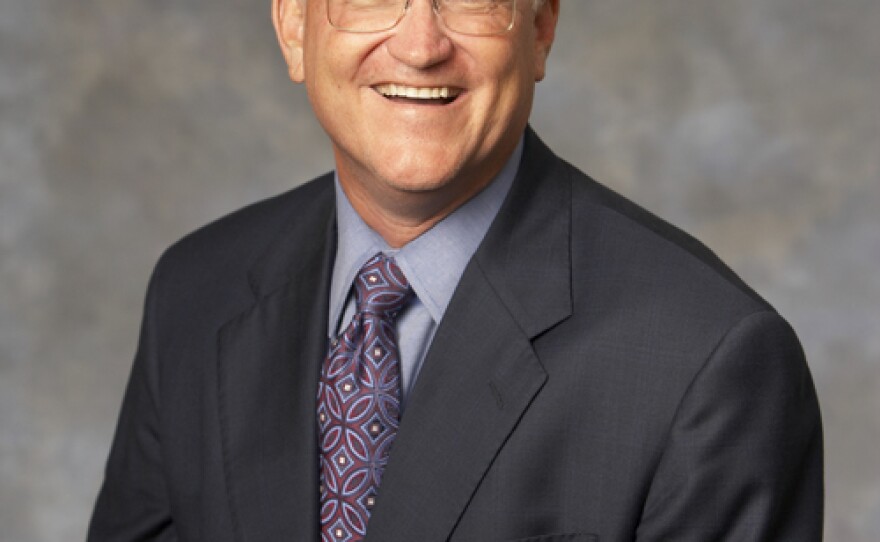SCENE: Spock stands in a clearing on an unknown planet. He looks intently at his tricorder, a handheld device about the size of a large paperback book.
SPOCK: "Captain, tricorder picking up very faint life readings, approximately 700 meters from here. Help will have to be immediate."
The tricorder didn't have a starring role like Spock or Captain James T Kirk. But the book-sized machine got screen time in nearly every episode of the original Star Trek TV series. The sensory device could scan people, places or things.
SCENE: Spock and Captain Kirk come upon Doctor McCoy. He's deep inside a cave, hanging from chains. They rush to him. Release him and put him on a bench. Spock does a scan with a tricorder.
SPOCK: "Internal injuries, bleeding in the chest and abdomen, hemorrhage of the spleen and liver, 70 percent kidney failure. McCoy "
That instant, in-depth analysis is what's captured the imagination of Qualcomm officials.
"The basic notion in the show was that you had a small handheld device you could wave over somebody and it would let you know what the problem was and what to do about," said Don Jones, Qualcomm Vice President.
Jones and others think the reality of that idea may not be that far away. He works with medical product companies that use wireless technology. They already have devices like portable ultra sound machines, wireless heart monitors, and even a fertility device that measures a body's core temperature. Jones said the idea behind Qualcomm's collaboration with the nonprofit X-Prize Foundation is to reach out where medicine has not gone before.
"Come up with sensors, software, kind of innovative approaches to collecting data and information to make it really, really easy to make a diagnosis," said Jones. "And do it in a way that's relatively inexpensive, lightweight, small, portable. And as minimally invasive as possible."
The $10 million prize is intended to focus efforts on this specific idea.
The medical field is already moving there. Telemedicine is a reality and remote surgery is possible, according to Mark Talamini, the chairman of the department of surgery at UCSD. He thinks a lot about how technology can improve medicine. Simulators, remote surgical tools, and cell phone technology all factor in. However, developing a portable diagnostic device raises the bar.
Of course the diagnosis isn't always magical, as this episode of the original Star Trek series shows.
SCENE: Captain Kirk and Spock wrestle momentarily. Spock's hand covers Captain Kirk's face. Kirk collapses and Doctor McCoy examines him with a tricorder.
SPOCK: I was unprepared for his attack. I instinctively used the Vulcan Death Grip.
McCOY: Your instincts are still good mister Spock. The captain is dead.
The tricorder appears to be a tool designed for a trained professionals, said Talamini, and he wonders how effective such a tool might be for ordinary people.
"A non-medical person gaining quick data to figure out whether a person has appendicitis, versus a stomach infection, versus just a little indigestion -- that may be a long leap," said Talamini.
And therein lies the challenge. The X-Prize Foundation is involved because the firm has some experience solving a problem like this. The first step is understanding what the problem is. Define the problem and let others find the solution.
"What we're trying to do is develop a mobile solution that can diagnose patients, better than or equal to a panel of board certified physicians," said Michael Timmons, X-prize spokesman. "So essentially what it would do is enable anyone, pretty much at any location, to quickly and successfully assess health conditions."
The X-prize and Qualcomm will convene a panel of experts by fall to decide exactly what they want the tricorder to do. Once the parameters are defined, teams will compete to develop the portable medical diagnostic device. The winner will cash a $10 million check.







